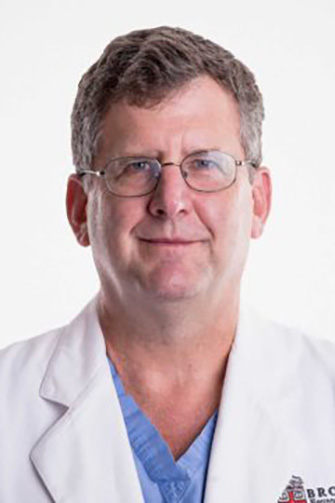
Since 1986, The Warren Alpert Medical School/Rhode Island Hospital Neurosurgery Residency Program has prepared residents for a successful career in neurosurgery. This supportive and well-structured program, which has been recognized by the Accreditation Council for Graduate Medical Education (ACGME), helps residents develop advanced clinical skills through hands-on experience with a full spectrum of neurologic diseases and treatments.
As part of the only Level 1 Trauma Center in southern New England, residents receive training in a wide range of neurological procedures, including cerebrovascular surgery, endovascular neurosurgery, neuro-oncology, epilepsy, spinal surgery, pediatric neurosurgery, functional neurosurgery, and stereotactic neurosurgery. We utilize a multidisciplinary approach to patient care to provide the best outcomes for our patients, which ensures residents will work in cooperation with many other services, including neurology, neuroradiology, oncology, orthopedics, emergency medicine and pathology.
During this rigorous 7-year program, residents are given the tools to develop their clinical expertise, professional judgment, diagnostic acumen, surgical technique, and interpersonal skills that are all key to their future success. At the beginning of each year, the Program Director reviews the specific written goals and individualized objectives established for each resident, based on preparing each resident for their chosen career path. Individual resident progress toward those goals is carefully assessed through semiannual faculty and group evaluations.
Residents and faculty within the Neurosurgery Department conduct research in the dedicated neurosurgery research facilities at Rhode Island Hospital or on the Brown University main campus. Brown University has an internationally respected neuroscience research program, with robust neurosurgery-specific research that crosses many disciplines. Residents are encouraged to get involved in research early in their training to optimize their productivity during the dedicated research year.
Residents receive guidance and mentorship from a team of dedicated faculty across subspecialties. These faculty members engage in didactic teaching as well as training residents in the operating room and outpatient clinics. Our goal is to prepare residents for successful careers as compassionate, thoughtful, and technically skilled leaders in the field of neurosurgery.
With best wishes,
Curtis Doberstein, MD
Residency Program Director